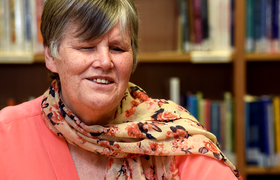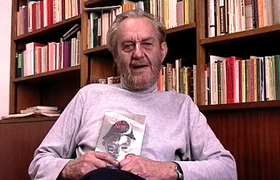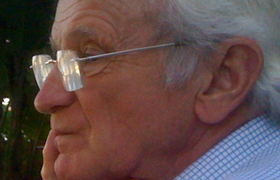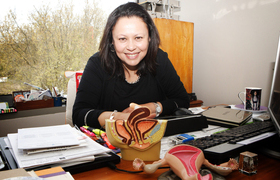Professor Robin Cherry: 1933–2019
26 April 2019 | Written by John Douglas Hey. Photo Supplied. Read time 7 min.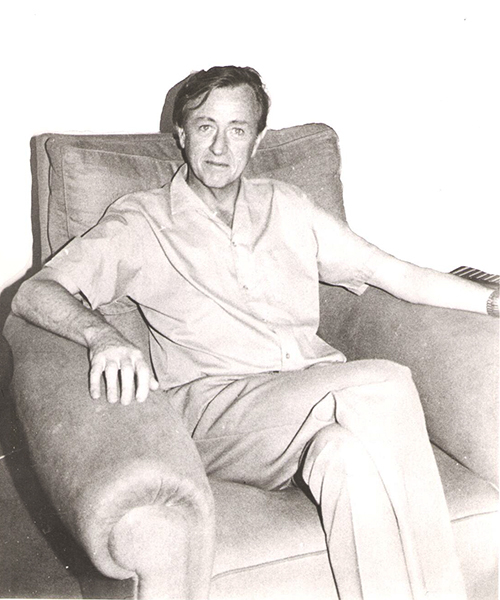
Robin Cherry, who died on 26 April aged 85, was on the staff of the Department of Physics from 1956 until his retirement in 1993, serving two terms as head of department. He was Dean of Science and Chair of the University Research Committee from 1983 to 1985.
On a typical weekday morning in the late 1960s, a visitor walking along the corridor of the fourth floor of the RW James Building, where research laboratories were housed on the inner side of the passage, would be greeted with the curious but hardly appetising aroma of various biological (mainly marine) samples being heated and prepared for measurement in research student offices.
Natural marine radioactivity was the field of activity of Malcolm Shay and Ian Gericke; farther down the passage was the geologist of the research team, Julian Hobbs, bespectacled above a beard of truly Victorian proportions and almost professorial of mien.
The sudden clicking of a Parker ballpoint pen, accompanied by rapid footsteps, announced the presence of the dapper and still youthful figure of the head of the team, Dr Robin Cherry, who would disappear into a lab, emerge and move on to the next one.
In each of these were arrays of counters clicking away quite slowly, as scintillation signals from the different samples mounted above photomultiplier tubes were counted electronically, the displays being entered by hand into the numerous ledgers lining the shelves.
This was the field of radioactivity in the natural environment, officially “low-level radioactivity”, an area of research established at UCT by Robin, and which, as Shay quipped one day, nevertheless benefitted from “high-level brains”, which his supervisor had in abundance.
Robin as a physicist was a complete UCT product: distinction in physics and applied mathematics at the end of his undergraduate studies, first-class honours in physics, and both MSc and PhD awarded by the university, the latter after the appearance of a considerable number of publications, not only on natural radioactivity, but also on fundamental aspects of nuclear physics: no fewer than six in Nature (with five more to follow), several in Geochimica et Cosmochimica Acta, and one in the Physical Review.
In the latter, which dealt theoretically with self-energy in mirror nuclei, the author thanked both Professor Louis Ahrens and the future Nobel laureate Professor Allan Cormack for “stimulating discussions”. In a future article co-authored by Ahrens, he speculated on the existence of super-heavy elements in nature. Here, then, was the clear promise of a distinguished research career in a wise choice of original research endeavour spanning some 40 more years, and one requiring collaboration with geochemists, geologists and marine biologists.
My own direct experience of this research programme was a very minor and modest one. Newly arrived from Stellenbosch kindly allowed to register for the honours degree by the head, Professor Walter Schaffer, I chose an honours project supervised by Robin, the first opportunity afforded a rather ignorant student to participate in original research: a new measurement of the half-life of the short-lived radioactive nuclide polonium-216 (an α-emitter).
It may be difficult for the younger reader to appreciate how different (and differently paced) life was in those now distant days over half a century ago. Desktop and laptop computers, the internet, cellphones (not to mention iPhones) were still decades away, and pocket calculators in the most primitive form had yet to appear on the market. While Robin could calculate with extraordinary rapidity with the aid of a slide rule, he was also provided with a single, bulky, mechanical calculator which performed only the most rudimentary mathematical operations.
Current journals were read in the small departmental library and the department possessed one single photocopier which produced such poor copies that note-taking was usually preferable. Theses were typed by Mrs Betty Prosser on special sheets with backing, copies of pages being run off on a Gestetner Roneo machine with regularly inked drum by a member of the support staff, Johnny de la Cruz.
Nearly all lectures were delivered with the aid of chalk and a blackboard, and we students were of necessity expert stenographers.
Robin’s professional career commenced at the extraordinarily early age of 21, with a junior lectureship in physics, following the award of his MSc degree, then, after a brief spell at Cambridge University, a lectureship in 1956, converted to a senior lectureship in 1961. His appointment as associate professor of physics in 1971, and professor the following year, followed spells as visiting researcher at Rice University in Houston (Texas) and at the Institute for Cancer Research in Sutton (Surrey). In 1977, Robin was appointed as consultant by the International Laboratory of Marine Radioactivity in Monaco.
During the years 1979 to 1982, Robin served as senior marine radioactivity specialist at the laboratory in Monaco, before his three-year spell as Dean of the Faculty of Science at UCT (1983–1985), thereafter returning to his chair in Physics in 1986. In 1991, he was appointed associate researcher by the Université de Perpignan on the French Mediterranean coast.
These years of specialisation on marine radioactivity resulted in a steady rate of publication in journals devoted to marine biology, many of these articles co-authored by Dr Mireille Heyraud.
Robin was not simply a narrow specialist; I particularly recall one book he lent me, Bomber, by Len Deighton, a fine, albeit fictionally based, account of the sufferings of the civilian population in Germany, with heavy casualties inflicted by the Allied bombing campaign during World War II.
In his case, the difficulties experienced by ordinary citizens opposed to their government did not remain the subject of fiction only, when restrictions placed on his daughter Janet (currently Professor of Development Studies at the Nelson Mandela University) during the PW Botha era resulted in regular flights by Robin to visit her in Port Elizabeth.
When, after the tenure of a Humboldt Fellowship, I finally left the department in December 1990 to take up a research appointment in Germany, Robin’s farewell speech was, as always, much too kind and generous – and the parting message inscribed “with warmest wishes” (and with the same Parker pen) in the gift presented to me, serves as a permanent reminder of one whose influence on my career and my life in general is enduring.
Written by John Douglas Hey.
 This work is licensed under a Creative Commons Attribution-NoDerivatives 4.0 International License.
This work is licensed under a Creative Commons Attribution-NoDerivatives 4.0 International License.
Please view the republishing articles page for more information.







